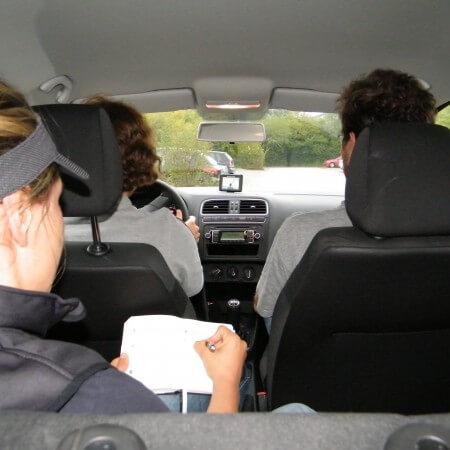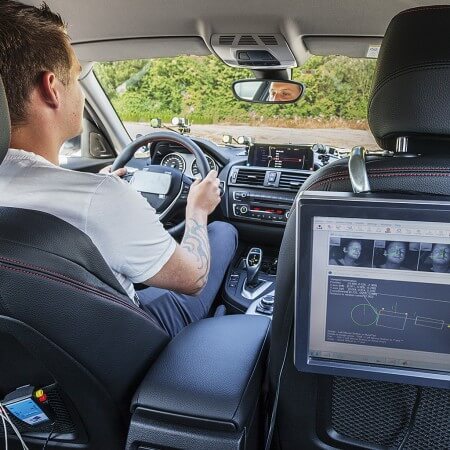
Nicole Perterer is a PhD Research Fellow at the Center for Human-Computer Interaction at the University of Salzburg. She holds a Master’s Degree in Psychology and Educational Science from the University of Innsbruck, Austria. Nicole is part of Car Experience Lab, which aims to enhance the interaction space in the car, taking experiences of all passengers and the influences of various context parameters into account. In her PhD, she investigates how interaction and collaboration can be facilitated in the car. In particular, Nicole is interested in “collaboration phenomena” and the main challenges for developing social-sensitive and collaborative in-car designs. For instance, how do private short-distance car-commuters (PSD) currently collaborate and communicate with others, while being alone in the car (i.e., to/from work)? Her research relates to various research activities proposed from the Christian Doppler Laboratory “Contextual Interfaces”.
Since 2010, she was also engaged in several national projects in the area of mobile HCI, e.g., AIR (Advanced Interface Research) and ELVIS (BenutzerInnenerlebnisse in der Verwendung von VerkehrsInformationssysteme). Additionally, she was working in the project ActiBrains, aiming to developing and validating a training tool for enhancing cognitive activities and memory performance of elderly people. Nicole is currently managing and working in an industrial project with the KTM Group aiming to enhance the motorcycle drivers’ experiences.
Working Title of Dissertation
How to Foster Safety and Driving Experience through Collaboration: A New Challenge for Automotive Designs
Summary and Expected Contribution
A high number of car accidents are caused as a result of excessive demands and distraction. Collaboration can support drivers, since other tasks, e.g., operating with the navigation system, can be taken over by a front- seat passenger. But how can we, as researchers and HCI designers, develop and design collaborative in-car systems that really address safety issues or reduce demands during driving? Based on findings from four in-situ studies, I draw attention on the car as a safety-critical environment, where collaboration may solve safety issues. My research will result in two contributions. First, the obtained knowledge will expand current research on in-car collaboration as well as collaboration beyond the car in terms of (a) characterizing different forms of collaboration, assistance and communication strategies, (b) identifying what common tasks allow more collaboration, (c) defining relevant User Experience (UX) factors (e.g., Trust or Connectives) and (d) describing relevant context factors (e.g., night or length of waiting period) that influence collaboration inside and outside the car. Second this works enables a deeper understanding of potentials, design challenges, as well as provide suggestions for future social-sensitive and collaborative in-car designs. For instance, how to achieve a common ground for drivers and front-seat passengers or lone-commuters and other people outside the car (i.e., other drivers).



